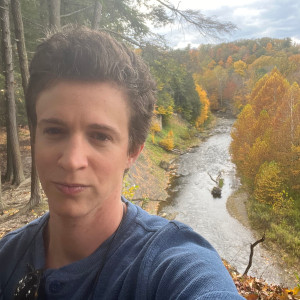
- This event has passed.
ASSET Seminar: “Copyright, Machine Learning Research, and the Generative-AI Supply Chain” (A. Feder Cooper, Cornell University)
November 1, 2023 at 12:00 PM - 1:15 PM
ABSTRACT:
“Does generative AI infringe copyright?” is an urgent question. It is also a difficult question, for two reasons. First, “generative AI” is not just one product from one company. It is a catch-all name for a massive ecosystem of loosely related technologies. These systems behave differently and raise different legal issues. Second, copyright law is notoriously complicated, and generative-AI systems manage to touch on a great many corners of it. They raise issues of authorship, similarity, direct and indirect liability, and fair use, among much else. These issues cannot be analyzed in isolation, because there are connections everywhere.
In this talk, I will discuss recent work that aims to bring order to the chaos. In a forthcoming law review article, Talkin’ ‘Bout AI Generation, my co-authors and I introduce the generative-AI supply chain: an interconnected set of stages that transform training data into generations. The supply chain reveals all of the places at which companies and users make choices that have copyright consequences. It enables us to trace the effects of upstream technical designs on downstream uses, and to assess who in these complicated sociotechnical systems bears responsibility for infringement when it happens. For examples of these complexities, I will also draw on joint work with MosaicML/Databricks that attempts to train a text-to-image generative model with openly licensed, Creative-Commons images. I will close with the key decisions that courts will need to make as they grapple with copyright issues, and point out the consequences that would likely flow from different liability regimes.
This talk reflects joint work with Katherine Lee, James Grimmelmann, and colleagues from MosaicML/Databricks.

A. Feder Cooper
Machine-Learning Researcher
A. Feder Cooper is a scalable machine-learning researcher who studies problems at the intersection of computer science and law. Currently, Cooper is a CS Ph.D. candidate at Cornell University, an Affiliate at the Berkman Klein Center for Internet & Society at Harvard University, and a student researcher at Google AI.
Cooper’s work centers on how to make more reliable conclusions when using machine-learning methods at scale and in practice, spanning contributions in distributed training, hyperparameter optimization, uncertainty estimation, model selection, and generative AI. In addition, Cooper engages in related research in tech policy and law, and spends a lot of time working to effectively communicate the capabilities and limits of machine learning to a wider audience.
In the past, Cooper has interned at Microsoft Research and was named a “Rising Star in EECS” by MIT. Cooper is also an alum of Cornell’s initiative on Artificial Intelligence, Policy, and Practice (AIPP), which has very generously provided research funding through the John T. and Catherine D. MacArthur Foundation.
